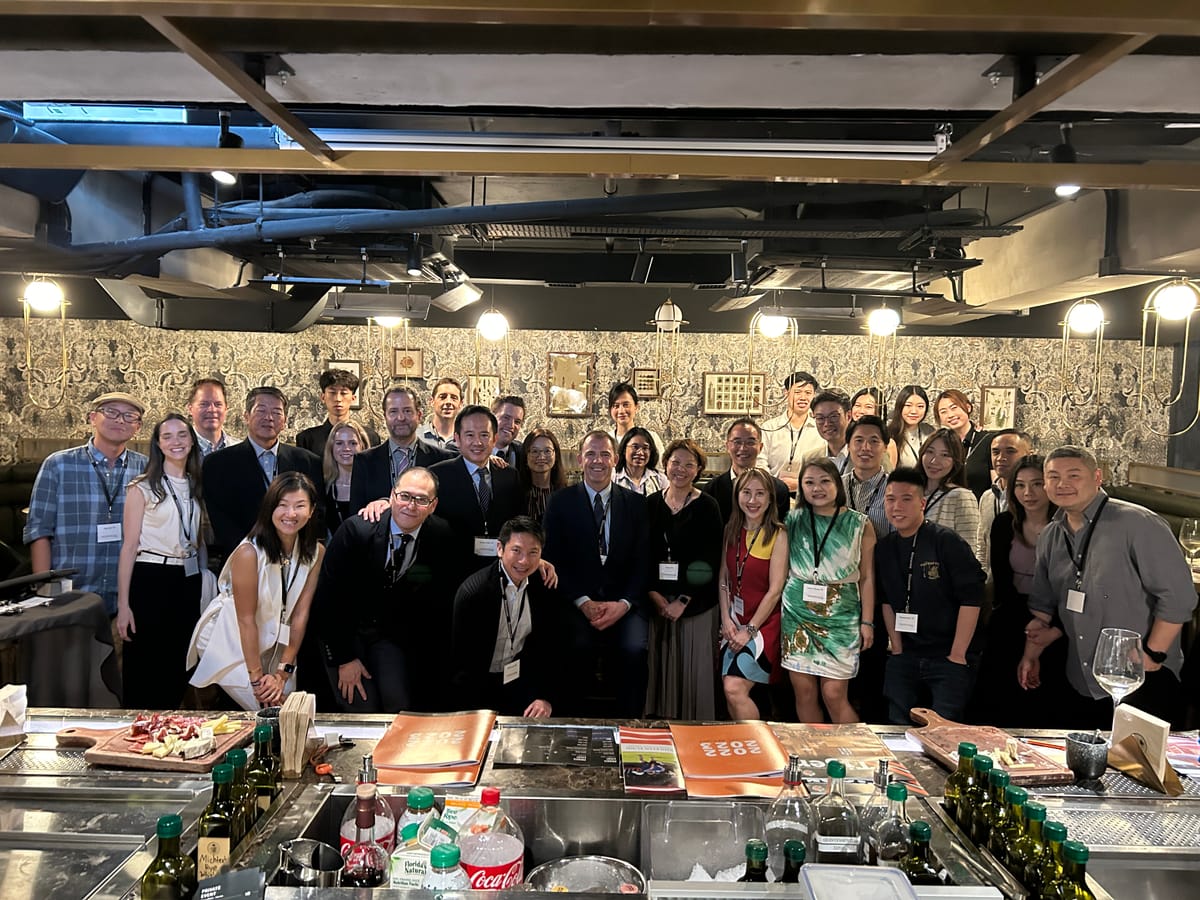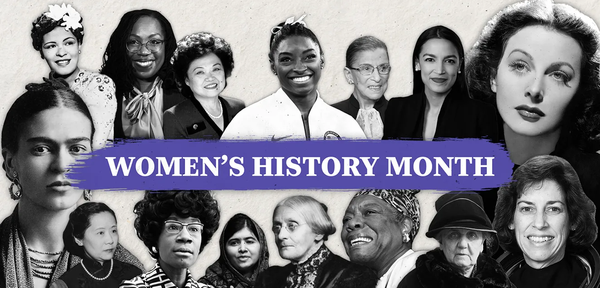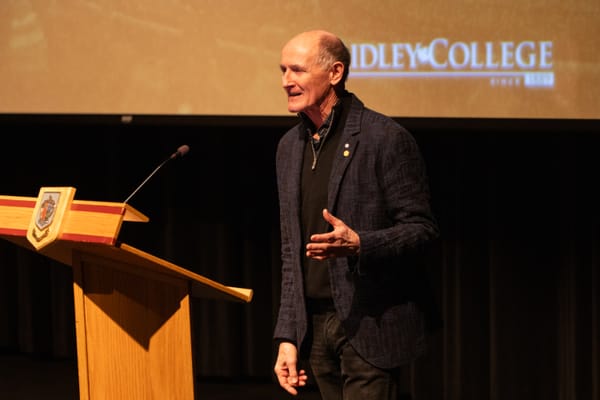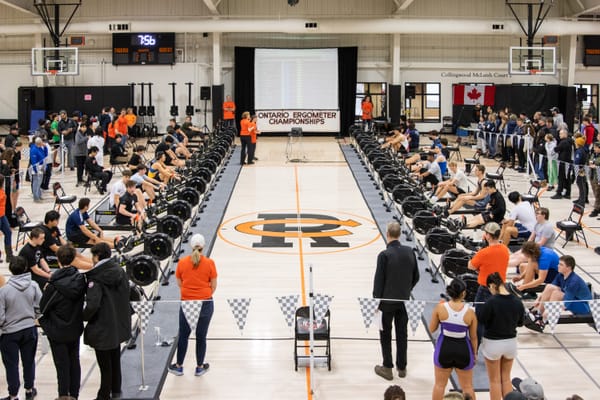Applauding Amazing Alumni for AAPI Month

By Rawnie Sun ‘25, Head Editor-in-Chief, Edited by Rebecca Liu ‘25, Head Editor-in-Chief
May is Asian American Pacific Islander (AAPI) Month, also known as Asian Heritage Month, which aims to celebrate and honour the history and contributions AAPI individuals have contributed to the shaping of Canada as a nation. It is a particularly important time for AAPI individuals as we reflect on our heritage and cultural impact. To honour the history of AAPI individuals at Ridley, The Tiger Times Team has reached out to some notable figures and invited them to a quick Q&A session!
MCRID WANG '15

Could you tell us a bit about yourself? What year did you graduate, what year and grade did you enter Ridley, what house were you in, where is your hometown, where are you now, and what do you do?
I entered Ridley College as a Grade 9 student in March 2012 and graduated in 2015. I was part of the Merritt South House, played on the varsity basketball team, and served as a Prefect. Growing up in Beijing, I left Canada after Ridley to pursue an undergraduate degree at Cornell University. Now I work as a finance professional in Singapore and run my podcast “nquirer” on the side (check it out — available across all major platforms!) :)
How do you think your cultural background influenced your high school experience?
Consciously, I was aware of the typical Asian stereotypes, but I didn’t let them define me or my experience. I saw myself just as a member of the Ridley community and pursued my own hobbies and interests. I didn’t think I was part of the majority or minority, at an advantage or disadvantage.
What advice would you give to current Asian/Pacific Islander high school students to help them navigate high school while staying connected to their cultural identity?
In my humble opinion, some best practices:
- Actively stay on top of global news/events. Consume journalism from a variety of sources and particularly from your home country.
- Actively seek out and understand opposing viewpoints from other cultures. We live in an increasingly complex and polarized world. Instead of focusing on our differences, take a step further to ask why. Scrutinize your own cultural biases and preconceived assumptions before jumping onto conclusions.
- Celebrate your culture and empower the less fortunate members of your community. Understand education is the greatest source for good and great power comes with great responsibility. Stay grounded in your roots and engage in activities that advance the common good of your community.
In what ways did Ridley in your time support Asian/Pacific Islander students, and what improvements do you think could be made in supporting Asian/Pacific Islander representation and inclusion?
Ten years ago, diversity and inclusion weren’t the talk of the town as much as today in the society and at Ridley (in some ways a good thing!). Asian Cuisines at the dining hall was the highlight of my memory. We also celebrated the Lunar New Year. On how to improve - I’m in no position to judge but just some brainstorming: bringing more AAPI alumni back on campus for talks, hiring AAPI counsellor/therapists, offering traditional Chinese medicine at the school clinic, etc.
CATHERINE HE '23

Could you tell us a bit about yourself? What year did you graduate, what year and grade did you enter Ridley, what house were you in, were is your hometown, where are you now, and what do you do?
I entered Ridley in 2019 as a ninth grade boarder from Angus, Ontario! I spent four years with my G-East Crocs before graduating in 2023. Now, I am a rising sophomore at Princeton University majoring in public and international affairs with additional interests in finance and computer science!
How do you think your cultural background influenced your high school experience?
I grew up in a rural area as the only Asian student at my elementary school, so I cherished the cultural diversity at Ridley. Being Asian American helped me bond with people across cultural boundaries, as I had been a part of two very distinct cultures simultaneously since childhood! Through my various relationships, my background allowed me to connect with fellow Asian students and develop a strong sense of my individual Asian identity (something I previously could not do) while also understanding where that intersects with being American and Canadian.
What advice would you give to current Asian/Pacific Islander high school students to help them navigate high school while staying connected to their cultural identity?
Be intentional about everything, and don’t opt for the easy way out. Take advantage of all the ways Ridley allows you to embrace your identity and learn more about yourself, whether through your extracurricular involvements or your choice of coursework - your future self will definitely thank you for it. However, always try your best to step out of your comfort zone and look past cultural “boundaries,” because these moments are the ones you will learn the most from!
In what ways did Ridley in your time support Asian/Pacific Islander students, and what improvements do you think could be made in supporting Asian/Pacific Islander representation and inclusion?
I appreciate Ridley’s willingness to support student observations of Asian holidays - one of my favorite memories has to be the annual Lunar New Year celebration! However, I often noticed barriers between Asian students and others, which certainly cannot be attributed to any one particular cause. I believe developing more deliberate ways of cross-cultural connection among students, such as with mentorship opportunities, would be helpful.
NANCY TING '94

Could you tell us a bit about yourself? What year did you graduate, what year and grade did you enter Ridley, what house were you in, where is your hometown, where are you now, and what do you do?
I graduated from Ridley in 1994. Despite being in Ridley for only 1 year (I went to Ridley for Grade 13), it was one of the most memorable years in my life. Being away from my hometown (Hong Kong) for the first time, Gooderham West became a second home to me. I moved back to my hometown after being in North America for 17 years and now lead Consumer and Creator Marketing for Google.
How do you think your cultural background influenced your high school experience?
In Asian culture, having “good grades” is considered as the ultimate success. As such, I picked classes at Ridley that I know I would excel at, and shy away from the ones that I have genuine interest in but unsure whether I would do well.
What advice would you give to current Asian/Pacific Islander high school students to help them navigate high school while staying connected to their cultural identity?
I would advise current Asian/Pacific Islander high school students to explore unfamiliar academic disciplines that interest them despite the unknown. There is also a tremendous opportunity to cultivate friendships with non-Asian/Pacific Islander students and foster cultural exchanges for the betterment of all.
In what ways did Ridley in your time support Asian/Pacific Islander students, and what improvements do you think could be made in supporting Asian/Pacific Islander representation and inclusion?
Ridley’s faculty always treated me no differently from any other students. As I continue to learn more on the topic of Diversity, Equity, and Inclusion (DEI), I would love to share this phrase: “If you don’t intentionally include, you would unintentionally exclude.” As everyone could be a minority in certain situations, bearing this phrase in mind and being an ally to someone else could promote inclusion in any community.
KECHUN (TONY) WU '23

Could you tell us a bit about yourself? What year did you graduate, what year and grade did you enter Ridley, what house were you in, where is your hometown, where are you now, and what do you do?
My name is Kechun (Tony) Wu, and I graduated in May 2023. I entered Ridley in Grade 10 and was part of Dean’s House. I am from Shenzhen, China, and I’m currently studying Economics and Computer Science at Duke University. After graduation, I plan to go into finance, specifically investment banking.
How do you think your cultural background influenced your high school experience?
My cultural background has been and continues to be a crucial part of my life. Back at Ridley, I made sure to attend and help organize cultural events such as the Mid-Autumn Festival. While I enjoyed exploring Canadian culture, maintaining my own cultural identity was very important to me.
What advice would you give to current Asian/Pacific Islander high school students to help them navigate high school while staying connected to their cultural identity?
High school can be a particularly confusing time as it is often when people begin to explore their own identities. At this stage, I think it is important to identify which of your identities you value most and act in alignment with them. Although “identities” should be a plural term instead of singular, understanding what you appreciate makes a big difference in navigation the challenges surrounding identities.
In what ways did Ridley in your time support Asian/Pacific Islander students, and what improvements do you think could be made in supporting Asian/Pacific Islander representation and inclusion?
Ridley had an awesome AAPI community during my time, and I greatly appreciated the numerous cultural events celebrated annually. The school provided lots of support to help organize those events, including financial and logistical assistance. Faculty members like Mrs. Smajda, Mr. Postma, Ms. Covent and many others were especially helpful in the process. While everything was great, one area that could be potentially improved is the diversity of AAPI events, particularly to include more representation beyond the Chinese community.




